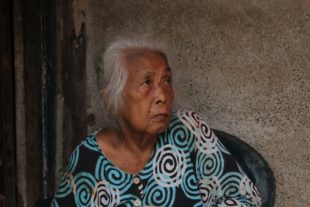The Difficult Changes of the Senior Years
Marty Robinette
It was a few years ago that I became a full-fledged senior citizen. With all the advantages such as discounted movie tickets, some fast food discounts, and qualifying for Medicare. It seems that AARP thinks I was one at fifty. I rejected that idea until recently.
 The first sign I knew I was getting older was not being able to run. I ran for exercise and stress reduction for about twenty-five years but then I discovered that arthritis was lurking in my joints. Particularly my knees. A couple of orthoscopic surgeries confirmed this and that became one of my first losses to the process they call aging. I still miss it.
The first sign I knew I was getting older was not being able to run. I ran for exercise and stress reduction for about twenty-five years but then I discovered that arthritis was lurking in my joints. Particularly my knees. A couple of orthoscopic surgeries confirmed this and that became one of my first losses to the process they call aging. I still miss it.
Another aspect of growing older was seeing my parents get to the point where their lives were greatly restricted. My dad had kidney failure and was put on dialysis for five years before he discovered cancer had ravaged his colon and spread to his liver. He died shortly after. Mom was left alone but found a companion in time, but she began to have serious health conditions.
She, being stubborn, did not take this well and sought to keep her independence as long as she possibly could. With some falls and other health scares we, the children, insisted that she move out of her house and into an apartment. She made this and a couple of other necessary moves, kicking and screaming (well, it felt that way). She was able to live twenty years past my father’s passing.
Seniors are often faced with a series of losses for people that they are not prepared to experience. We think that because these folks have experienced a lot of life that they will be prepared to handle the challenges ahead. And many are, but many find themselves ill-equipped to emotionally and psychologically handle the changes and losses that are happening or coming. The following shows the need for support for the senior population as they grow older in our nation.
The growing numbers.
The growing number of aging Americans is going to be staggering in the future. There were fifty-two million people sixty-five years or older in 2018 and that number is expected to grow to ninety-five million by 2060. That translates into sixteen percent of the population now and will rise to twenty-three percent by 2060.
The implications to our society of this demographic shift are going to force the nation to make difficult choices when it comes to caring for these folks as they grow older and eventually die. The purpose is to show a few of the needs that exist today concerning our aging population and the challenges of everyday life for many Americans.
Depression.
One of the most common mental health disorders experienced by the aging is depression. Depression may have been a common experience as the seniors lived their adult life or it may have come upon them for the first time in this stage.
 One model of depression associated with the elderly is where the individual experiences a major depressive episode and then finds resolution in time and never has another or they may later head down the road to another depressive episode. For many seniors, their first bout with depression comes in their later years.
One model of depression associated with the elderly is where the individual experiences a major depressive episode and then finds resolution in time and never has another or they may later head down the road to another depressive episode. For many seniors, their first bout with depression comes in their later years.
Studies have shown that older people often feel satisfied with their lives compared to other age groupings but about twenty percent of that segment have mental health conditions including emotional disorders, depression, and suicidal tendencies.
Of those experiencing depression, sixty percent had a Major Depressive episode and got better and twenty-two percent showed signs that they continued to remain depressed. The contributing factors to the existence of depression in the elderly can largely be explained by their living experiences during that time.
Though many elderly have had satisfying productive lives, little prepares them for the many losses that can happen to one in a short period. The later years are often characterized by loss. Such losses as that of a life partner to death or incapacitating illness, loss of their home and autonomy, loss of their physical health, loss of mobility, loss of their cognitive abilities, financial loss, and loss of social contact to name a few.
Each of these losses can be the catalyst to a depressed mood that could last a long time and be severe enough to qualify as a major depressive episode. Some of those symptoms include feeling depressed or sad most every day and all day, loss of interest in pleasure or pleasurable activities, weight loss or gain, insomnia or hypersomnia, fatigue or loss of energy, feeling worthless, difficulties in concentrating, and recurrent thoughts of death or fear of dying.
In many cases, these losses are compounded over a short period and leave the person bewildered and feeling helpless. One study, The Longitudinal Aging Study Amsterdam, showed that the older the age group the higher likelihood of depression and chronic symptoms of depression. The reason, the various losses keep piling up and the person is feeling ever more isolated.
 Many studies have shown that depression often goes undiagnosed with the elderly due to their presenting physical ailment when meeting their general practitioner. The list of symptoms mentioned earlier shows how that confusion could take place.
Many studies have shown that depression often goes undiagnosed with the elderly due to their presenting physical ailment when meeting their general practitioner. The list of symptoms mentioned earlier shows how that confusion could take place.
The common experience is for the elderly person to go to the doctor regarding an ailment and then go home with some medication that might address that issue, but the issue might be depression. The good news is that it is becoming routine for primary care doctors to conduct a screening for depression and cognitive loss as a routine process.
Evidence that many elderly are going unnoticed and undiagnosed with depression is the alarming rate of suicides by this population. Suicide is highest among old people compared to any other age group according to the World Health Organization. Men are more likely to die this way and the likelihood increases with age.
Seventy percent of the elderly who die by suicide suffer from a psychiatric disorder, primarily depression, and or chronic pain. Some of the contributing factors are the losses mentioned earlier as well as a sense of hopelessness, the long duration of the depression and sleep disturbance. It is also unknown how many suicides are the result of excessively high doses of their medication.
There is a compounding effect of depression leading to an early death for this group due to low mobility, cardiovascular neglect, substance abuse, and not complying with their medicinal regimens. Once again, it is apparent that we, as a society, health professionals, and family members need to be more attuned to these concerns.
Anxiety and stress.
With the various points of loss that could happen with the elderly, another common response is anxiety and stress. These life changes are often life-changing and leave the person feeling defeated and helpless. As with depression, the level of stress and anxiety experienced by the elderly is often overlooked because the more obvious physical problem may overshadow the mental and emotional state.
 The age group that experiences the greatest amount of stress is 60-69. Those years represent the end of professions, retirement, onset of health issues, and more. The isolation, lack of autonomy, health problems, family conflict, financial stress, lack of support, and the experience of ageism were the contributing factors.
The age group that experiences the greatest amount of stress is 60-69. Those years represent the end of professions, retirement, onset of health issues, and more. The isolation, lack of autonomy, health problems, family conflict, financial stress, lack of support, and the experience of ageism were the contributing factors.
Many respond to these situations by fleeing rather than fighting back. The support of a therapist to help people through these troubled times could help them with their anxiety so they can sense a more positive future and help them live a more satisfying life.
Past trauma.
More often than not, as a person begins these later years of life, they have not accessed therapy to help them through their troubles. It is during this time when there is less structured time and more time to reflect on their lives where hidden issues may surface. It has been reported that PTSD becomes more evident for the first time in an aged person.
The surfacing of trauma from earlier relationships, military experiences, disasters, or a host of other possibilities will begin to cause sleep disturbance, emotional reactions, or recurrent traumatic memories that can catch the person off guard and unable to process. The need to assist the person to come to understand these memories and process them in a healthy way could require therapeutic assistance.
There is help.
As folks get older their circle of friends can shrink or they might find themselves in living situations as a retirement home or assisted living. These changes are often difficult to adjust to even though they may be necessary. I think a lot of folks are struggling in silence from their many losses, emotional pain, or that life hasn’t turned out to be what they had hoped.
Family can surely provide support and a level of comfort but the ability to be free to share some of those deep struggles can often only come from talking to a professional. How wonderful it would be for someone who is experiencing agonizing depression or feeling serious anxiety over their present and future to have some relief or resolution.
If you or someone you know and love could use the assistance of a therapist to help them through this time of life I would consider it a great privilege to be that person.
“Man Sitting on Bench”, Courtesy of GLady, Pixabay.com, CC0 License; “On a Walk”, Courtesy of Coombesy, Pixabay.com, CC0 License; “Old Lady”, Courtesy of lhsanayyasy, Pixabay.com, CC0 License; “Potter”, Courtesy of LubosHouska, Pixabay.com, CC0 License






